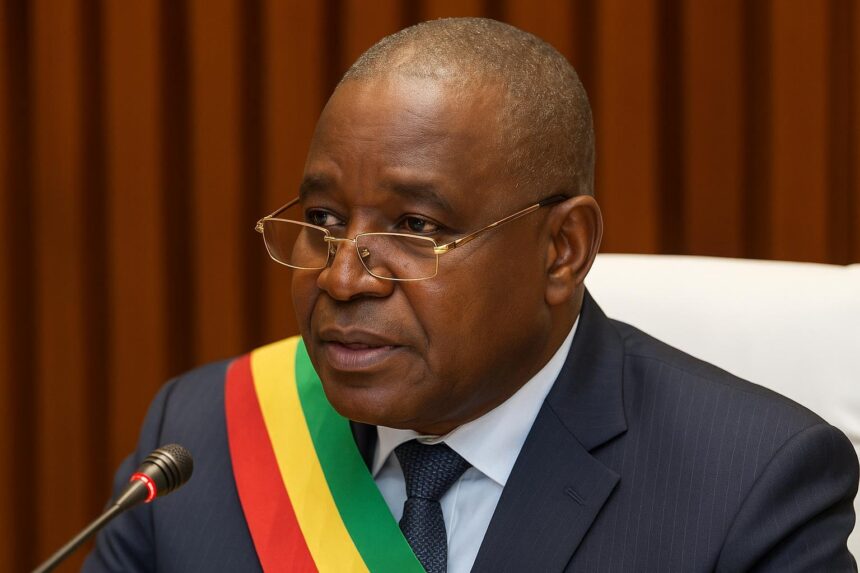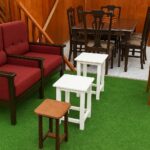2025 Parliamentary Session Closes in Brazzaville
Brazzaville’s marble-pillared Palais des Congrès echoed with a sense of closure on 13 August 2025 as the National Assembly and the Senate simultaneously adjourned their regular sittings, presided over respectively by Speaker Isidore Mvouba and Senate President Pierre Ngolo, two seasoned figures of Congolese institutional life and politics.
Wearing the green-gold sash of office, Mvouba opened the final sitting by thanking deputies, clerks and security staff for what he called “exemplary diligence,” a phrase later echoed by public broadcasters who praised a session that handled complex texts amid regional security concerns and commodity-price volatility this year.
Unity and Responsible Discourse Emphasised
Addressing the chamber, the Speaker underlined that effective governance rests on “lucid dialogue and civic respect,” urging citizens to replace personal attacks with arguments grounded in policy, a message aligning with President Denis Sassou Nguesso’s longstanding emphasis on cohesion as a cornerstone of national resilience within the Central African sub-region.
Mvouba’s appeal resonated beyond parliament; faith leaders on Radio Congo welcomed the call, noting that online discourse had recently grown abrasive during municipal campaigns. Analysts at the think-tank CERAPE say tempering rhetoric could attract more foreign investors who monitor political sentiment as closely as macroeconomic indicators every quarter.
Budget Debate Signals Fiscal Discipline
Central to the session was the budget orientation debate, a legally mandated preview of government priorities. Finance Minister Ingrid Olga Ghislaine Ebouka-Babackas outlined plans to reallocate spending toward rural electrification and digital connectivity, stressing fiscal discipline after the IMF projected a modest 4.2 percent growth for 2025 economic expansion.
Opposition deputies welcomed the transparency exercise yet pressed for clearer timelines on youth-employment programs. In response, the Budget Committee promised quarterly monitoring reports, echoing recommendations from the World Bank’s May Country Economic Memorandum that underscores consistent data disclosure as pivotal for debt sustainability and concessional financing opportunities ahead.
Senate Perspective on Social Development
When it was the Senate’s turn, Pierre Ngolo paraphrased the Head of State: legislators, he said, must “carry the nation’s hopes in quiet conscience.” The seasoned lawyer reminded colleagues that parliamentary benches remain watchtowers of national unity rather than trenches of partisan skirmish, particularly in electoral countdowns ahead.
Ngolo added that the ultimate metric of legislative success lies in tangible improvement of households’ living conditions. To that end, committees were asked to intensify field hearings in Sangha, Cuvette and Niari, ensuring that remote communities—often under-reported by capital media—inform forthcoming texts on agriculture and decentralisation policy drafts.
Safeguarding Cohesion Ahead of 2026 Election
The political calendar now pivots toward the 2026 presidential election, widely expected to crystallise debates on diversification and climate adaptation. The Congolese Independent Electoral Commission has already validated a training schedule for polling officers, while the African Union’s pre-assessment mission praised “encouraging inter-institutional coordination” during its June visit.
In interviews, civil-society leaders such as Félicité Ngouabi of Observatoire des Droits et Devoirs Citoyens said robust consultation mechanisms could further reinforce trust. Government spokesperson Thierry Moungalla noted that hotline platforms and provincial forums would open this October, offering citizens avenues to contest preliminary voter lists or logistic decisions.
Both presiding officers dedicated separate passages to freedom of expression, applauding vibrant debate while condemning defamation and hate speech. Their stance mirrors the African Commission on Human and Peoples’ Rights guidelines that couple expressive liberty with obligations to prevent advocacy of violence, a balance scholars call “disciplined pluralism.”
Technology firms active in Congo have taken note. A representative for Meta stated that Facebook’s integrity team would expand Lingala and Kituba moderation after local NGOs flagged gaps during last year’s referendum. Experts at Internews believe cooperation between platforms and regulators can defuse online rumors before tensions rise.
Humanitarian Response and Legislative Output
Lawmakers also applauded the rapid relocation of families affected by the June 2025 floods. The operation, coordinated by the Ministry of Social Affairs and supported by the office of First Lady Antoinette Sassou-Nguesso, provided temporary housing in Kintélé within two weeks, according to data shared with UN-OCHA regional desk.
Humanitarian observers from the International Federation of Red Cross Societies credited advance contingency mapping for limiting casualties. Climate analysts at Columbia University’s Lamont-Doherty Laboratory say Congo’s investment in river-level sensors, partly financed by the Green Climate Fund, could become a model for flood-prone neighbours along the Congo Basin.
Productivity figures revealed a legislature keen on pragmatism: deputies adopted 27 of 32 items, while senators passed 24 of 27. Measures ranged from an SME incentives code to ratification of the African Continental Free Trade Area’s dispute mechanism, underscoring Congo’s determination to anchor itself in continental value chains.
As the gavel fell, both chambers pledged to reconvene in October with reinforced scrutiny tools and an eye on the 2026 horizon. For now, the dominant takeaway remains the same message broadcast from Brazzaville’s chambers: criticism is welcome, but civility and shared purpose must frame Congo’s democratic journey.






















